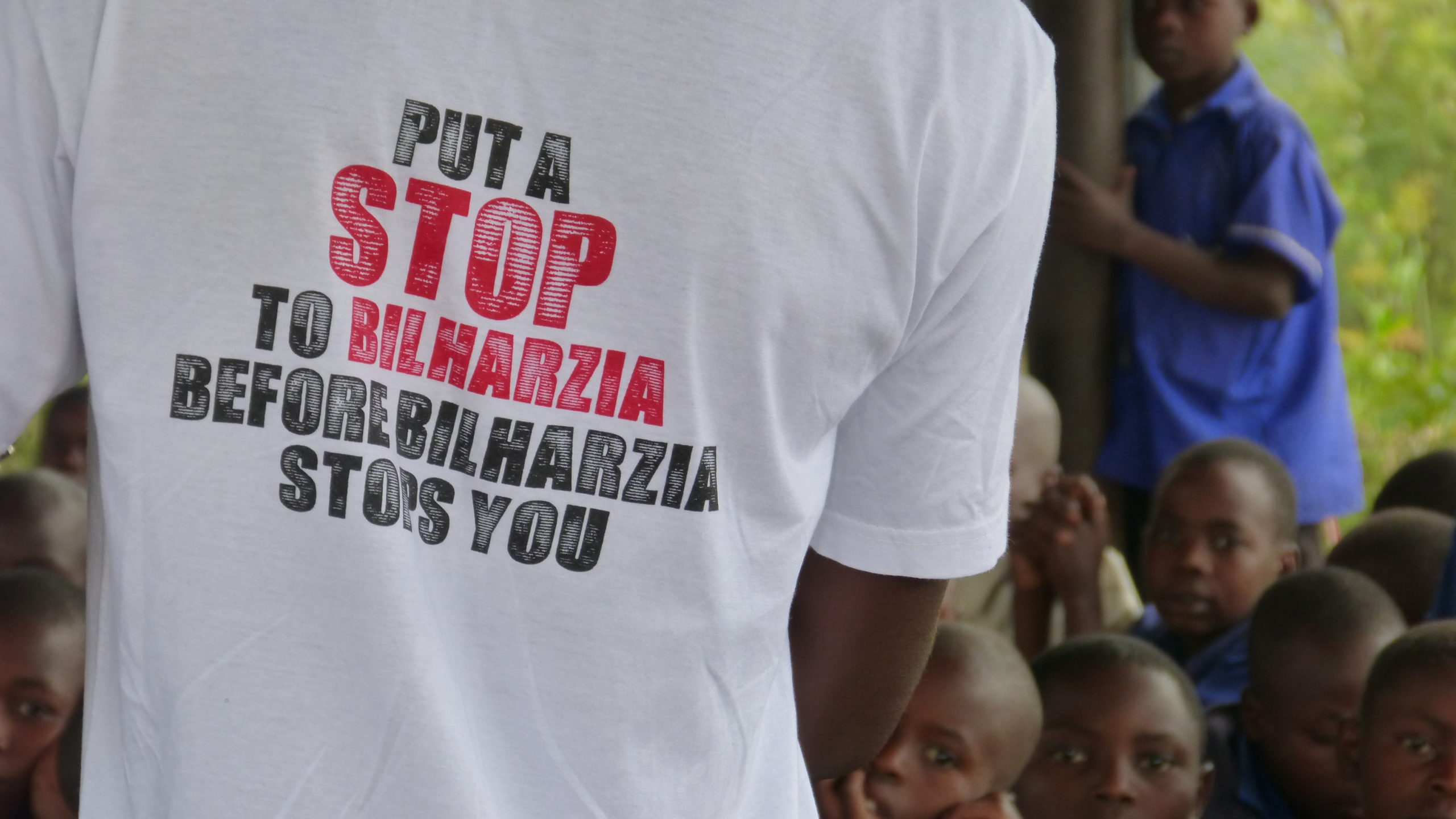Preventing the Spread of Schistosomiasis
The Johns Hopkins Center for Communication Programs, in partnership with the Ugandan Ministry of Health, created the Bilharzia Prevention Campaign to encourage people in 43 districts in Uganda to adopt behaviors to prevent the spread of schistosomiasis.
Twenty percent of Ugandans over the age of 5 have schistosomiasis as do 30 percent of those between the ages of 2 and 5, according to a 2016 survey conducted by PMA2020.
A medication that is distributed through mass public campaigns yearly or every other year can treat the illness. But this takes care of only one half of the equation.
The Campaign
The Bilharzia Prevention Campaign in Uganda focused on the other half: prevention. “Put a stop to bilharzia before bilharzia stops you,” read the campaign’s tagline. The campaign focused mainly on how people can avoid contact with schistosomiasis-contaminated water. For instance, wearing boots and gloves when working in the water or collecting water for washing and bathing early in the day when the worms are less active.
The campaign also emphasized that people should take the medication when it is offered and to never urinate or defecate near or in the water.
The practice of open defecation and urination is a longstanding one that will be a challenge to solve – no matter the risks – and avoiding contact with surface water requires huge lifestyle changes.
The Bilharzia Prevention Campaign:
- Created and broadcast radio ads, skits and call-in shows featuring local health officials with expertise in schistosomiasis.
- Broadcast community conversations from 24 highly endemic districts.
- Translated the campaign materials into nine local languages and plan to translate it into several more.
- Produced an illustrated flipchart about bilharzia for use by health workers and volunteers.


